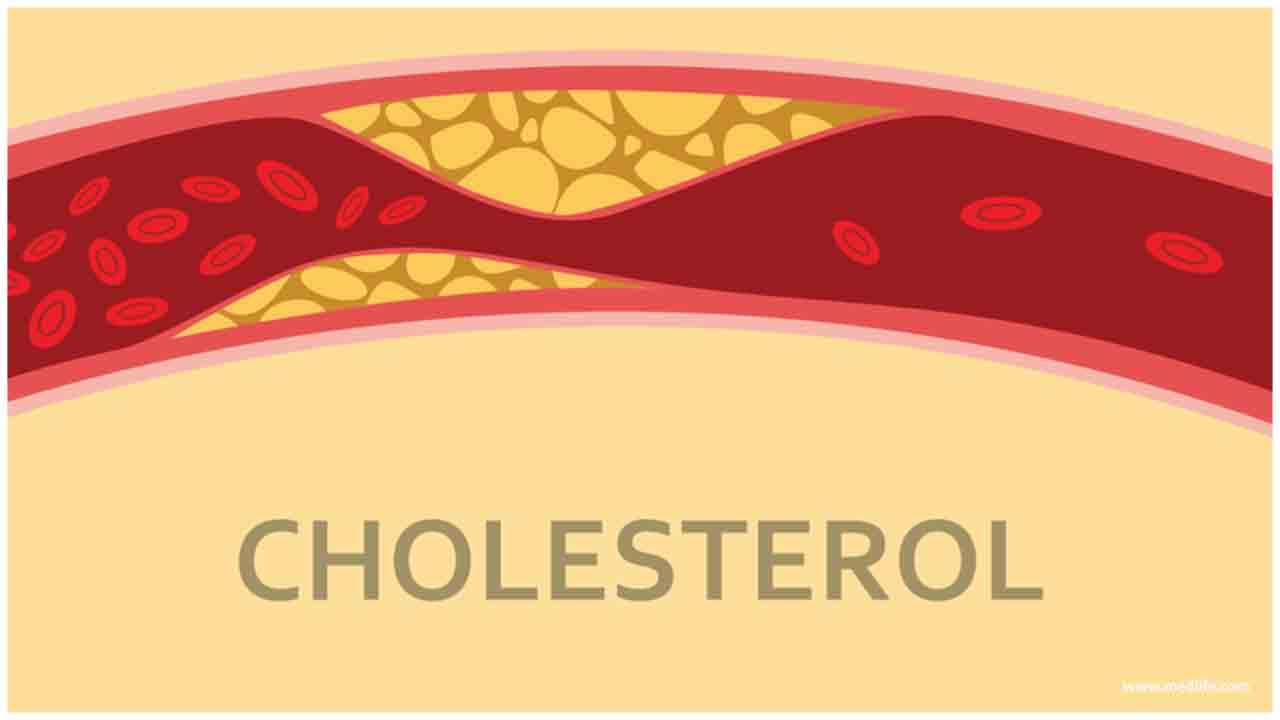Cholesterol is a fat-like substance that is waxy that's found in all the cells of our body. Our body needs some cholesterol to make hormones like testosterone, synthesize vitamin D, and substances that help in digesting foods like bile. Our body makes all the cholesterol it needs. Cholesterol is also found in foods from animal sources, such as egg yolks, meat, and cheese.
CHOLESTEROL: Why is it so important?
Cholesterol is a basic component of the body's legitimate working. It streams in the circulation system because of transporters called HDL (high-density lipoprotein) and LDL (low-density lipoprotein). This is the reason we regularly talk about HDL cholesterol, which is frequently alluded to as "good cholesterol", and LDL cholesterol alluded to as "bad cholesterol".
Generally, 15% of blood cholesterol originates from the diet, and the other 85% is produced by certain body cells. That means cholesterol is so important that our liver and intestines make about 80% of the cholesterol required to stay healthy and only about 20% comes from the food that you eat.
Despite the fact that we will in general point out its flaws, cholesterol has various importance.
Truth be told, it adds to a few biochemical cycles, for instance:
- It assumes a job in cell membrane synthesis.
- It goes about as a forerunner in the creation of a few hormones, including cortisol, sex hormones, and different substances basic to our bodies.
- It fills in as a synthetic courier, permitting correspondence between various cells.
- It assumes a job in energy preservation (storing and supplying).
CHOLESTEROL: What is the problem?
In the event that cholesterol is so critical, for what reason is it such a worry? While an elevated level of good cholesterol is related to defensive impacts, bad cholesterol is viewed as the main foe of cardiovascular wellbeing.
An overabundance of bad cholesterol (hypercholesterolemia or hyperlipidemia in clinical terms) causes medical problems. Cholesterol gathers and is stored on walls of the arteries (particularly on the heart's veins), making a greasy development that thickens after some time. This cycle is called atherosclerosis.
The progression of blood turns out to be progressively troublesome and in the long run, blood clots form. These people have an expanded danger of myocardial dead tissue (respiratory failure), cerebrovascular mishap (CVA or stroke), or blood dissemination issues. This is the reason grown-ups ought to be worried about their blood cholesterol levels. Luckily, it is conceivable to deal with these levels to stop hypercholesterolemia.
Your primary care physician can decide the degree of your cardiovascular hazard and suggest the proper counteraction techniques.
How do I know if my cholesterol levels are high?
A finding of hypercholesterolemia depends on blood levels (blood test done on an empty stomach) of:
- complete cholesterol
- LDL cholesterol
- HDL cholesterol
- non-HDL cholesterol, and
- triglycerides
This arrangement of cholesterol levels is known as a "lipid profile".
For instance, the accompanying variables incline an individual to hypercholesterolemia:
- A high-sugar and high-fat eating routine - One type, saturated fat, is found in some meats, dairy products, chocolate, baked goods, and deep-fried and processed foods. Another type, trans fat, is in some fried and processed foods. Eating these fats can raise your LDL (bad) cholesterol.
- Inactivity - This lowers your HDL (good) cholesterol.
- Smoking - This lowers HDL cholesterol, especially in women. It also raises your LDL cholesterol.
- overconsumption of liquor
- Obesity
- family background of hypercholesterolemia, and
- diabetes
How might I lower my dietary intake of cholesterol?
Here are a couple of straightforward approaches to diminish your dietary admission of cholesterol.
- Eat more fruits, vegetables, entire grain items (oats, grain, entire wheat, and so forth) and vegetables (chickpeas, lentils, dry beans, and so on).
- Decrease your meat utilization. A segment of meat the size of a pack of playing a game of cards is viewed as adequate. Pick lean meats, for example, poultry and fish.
- Abstain from fried foods. Decide on other cooking techniques (stove prepared, small scale waved, steamed, cooked in stock, and so on).
- Consume less of high cholesterol foods, for example, egg yolks, offal (liver, kidneys, and so on), and margarine.
- Pick low-fat milk items, for example, skimmed milk and yogurts containing less than 1% fat.
- Advice from a nutritionist.
What else can I do to reduce my cholesterol levels?
- Keep up a solid weight.
- Increment physical movement.
- Cutoff your liquor utilization.
- Stop smoking.
- On the off chance that you are living with diabetes, cautiously screen your blood glucose.
What about medications?
To bring down cholesterol levels, first, it is imperative to zero in on the way of life changes depicted previously. However, the utilization of medicine is sometimes necessary. A few prescriptions can successfully bring down blood cholesterol levels.
Logical investigations have demonstrated that a few drugs have had a preventive impact on the recurrence of cardiovascular ailments in the danger of people.
In the event that you have been endorsed drug to bring down your cholesterol, make certain to take it normally. Your doctor can give data on its belongings and how to receive the full rewards. On the off chance that you experience symptoms or have any worries, address your drug specialist, whose important exhortation will help and console you.
Try not to spare a moment to speak to your doctor on the off chance that you have any inquiries regarding cholesterol or cardiovascular wellbeing

 Cholesterol is so important that liver and intestines make about 80% of the cholesterol required to stay healthy and only about 20% comes from the food that you eat.
Cholesterol is so important that liver and intestines make about 80% of the cholesterol required to stay healthy and only about 20% comes from the food that you eat. 















.jpeg)











.jpg)




